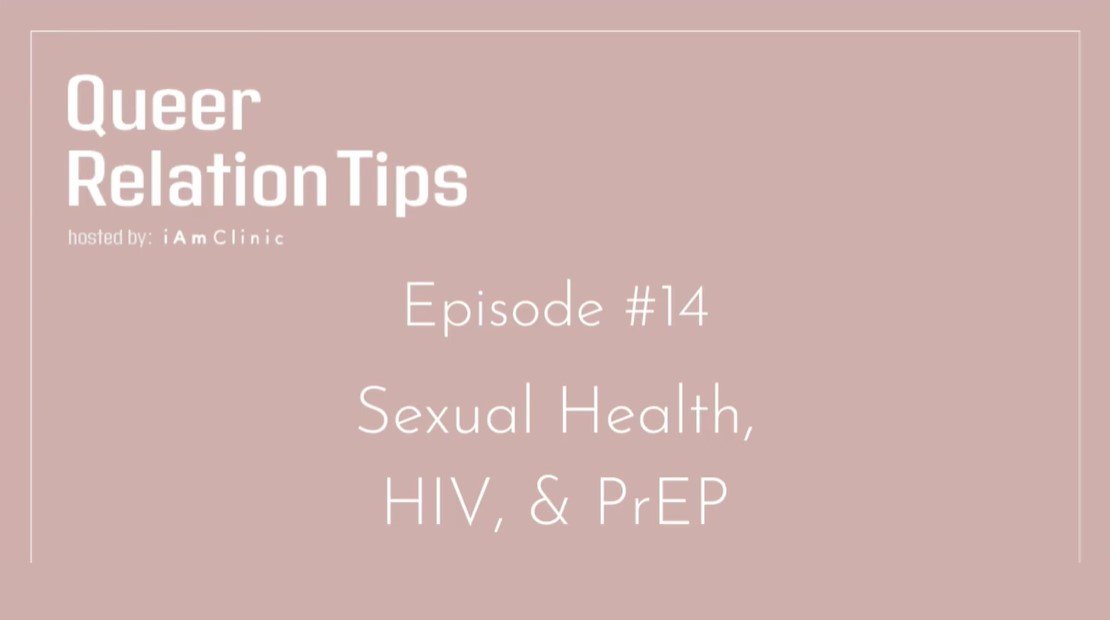Episode Introduction
LGBTQ+ sexual health is a very important topic. Many of us didn’t have “the talk” which leaves those of us in the LGBTQ+ community feeling as though we have to reinvent the wheel or fake it ‘till we make it, but, thankfully, we get to talk about it now.
In this episode, we have an inquisitive nurse and a brilliant nurse practitioner, Randall McDavid, who break the ice in a conversation that is usually held within the private walls of a doctor’s office. They talk about condoms, sexual health, STIs, and what research is showing us about HIV prevention medicines, like PrEP.
The cost of PrEP and how it’s paid for is a crucial topic when discussing its accessibility and affordability. PrEP, or Pre-Exposure Prophylaxis, is a medication regimen taken by individuals who are at high risk of contracting HIV to prevent the virus from establishing itself in their bodies. Here, we’ll delve into the cost of PrEP, insurance coverage, and assistance programs to make it more accessible.
The Cost of PrEP:
The cost of PrEP can be substantial, and it varies depending on the specific medication you’re prescribed. As of my last knowledge update in September 2021, two common PrEP medications are Truvada and Descovy. Without insurance or assistance programs, the average monthly cost for these medications can be around $1,800.
Insurance Coverage:
Many insurance plans, including Medicaid, typically cover PrEP. However, the level of coverage, including copayments or deductibles, may vary between insurance providers and plans. It’s essential to contact your insurance company to understand your specific coverage and any associated costs.
Patient Assistance Programs:
Both Truvada and Descovy are manufactured by Gilead Sciences, the pharmaceutical company. Gilead offers a patient assistance program called “Gilead Advancing Access.” This program helps eligible individuals afford their PrEP medication by providing financial assistance, often in the form of copay cards.
With the assistance of the Gilead Advancing Access program, many patients can significantly reduce or eliminate their out-of-pocket expenses for PrEP. The program typically provides a maximum annual benefit of $7,200.
To take advantage of these assistance programs, you’ll usually need to meet certain eligibility criteria, such as income limitations. Your healthcare provider can guide you through the application process and help you determine if you qualify.
Generic PrEP:
As mentioned in the conversation, there were discussions about Truvada going generic. Generic medications are typically more affordable than their brand-name counterparts. However, it’s essential to monitor developments in the availability and pricing of generic PrEP in your region.
State Programs:
Some states have initiated PrEP-specific programs or grants to increase access and affordability. In the conversation, “p-hip” was mentioned as an insurance option available in Colorado. Similar state-level programs may exist in other states, so it’s worth exploring whether your state offers any assistance programs for PrEP.
Keep in mind that the information provided is based on my last knowledge update in September 2021. The landscape of healthcare and medication pricing can change over time. It’s crucial to consult with a healthcare provider, a PrEP navigator, or an organization specializing in HIV prevention to get the most up-to-date information on PrEP availability and assistance programs in your area. Additionally, it’s advisable to verify your insurance coverage and any potential out-of-pocket costs associated with PrEP.
Episode Debrief
I was listening to these two brilliant men talk about sex in the background. Scribbling to take notes, I was enamored with their insights and excited to imagine how their conversation might guide our behaviors to practice sex with a little bit more confidence, comfort, consent, and most importantly wisdom.
Many of us have preconceived notions about sex—what works, what smart, what’s best—but I am thankful for people who are willing to ask the bold questions and the professionals who know the answers so that we can know what is accurate about sex and our bodies.
Many of us never got the birds and the bees talk and certainly didn’t get the bees and the bees talk. This often leads to a silence in our sex lives that might leave us exposed to risk, emotionally and physically. Hopefully, this episode gives you the information you need to stay safe and keep sex fun!
Have you talked about sexual health with your partners? In my experience as an LGBTQ+ therapist, I’ve noticed that we often get into sex first and then have the serious conversations after. But, I believe knowing your partner first and creating safety before sex will make sex, well, more sexy.
I hope you enjoy this episode and that you take some of the wisdom you gleaned from these brilliant men to improve your sex life and keep you safe out there.
Episode Links
Colorado Public Health Intervention Program







